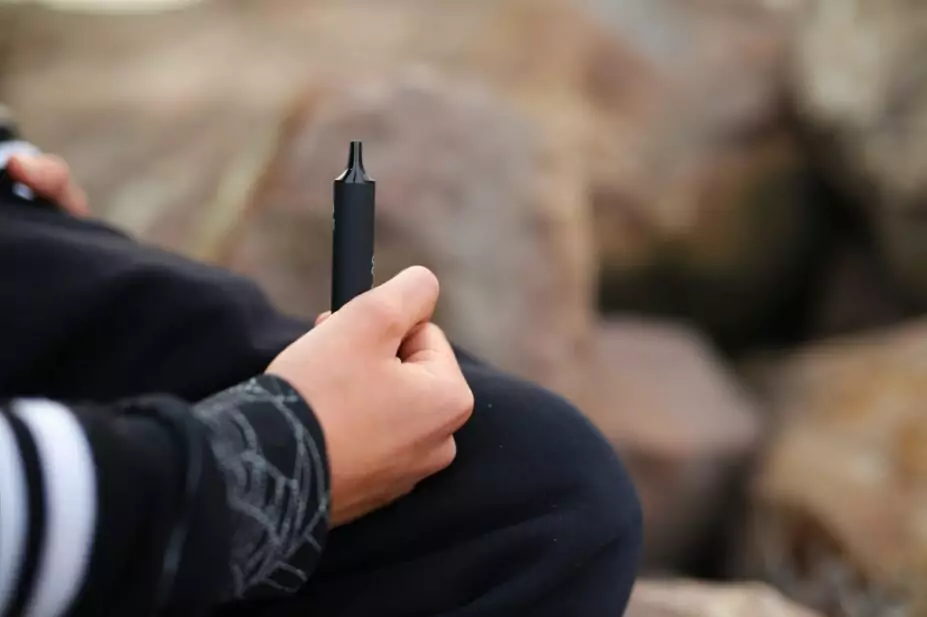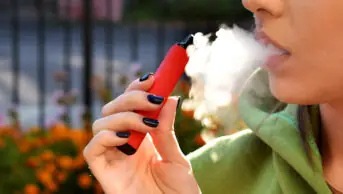
Shutterstock.com
The Scottish government is consulting with pharmacy officials about nicotine addiction treatment for children aged under 12 years, amid concerns that children are using e-cigarettes or ‘vapes’ from the age of 8 years.
At a meeting of the Health, Social Care and Sports Committee on 12 September 2023, Gillian Mackay, member of Scottish parliament for Central Scotland, asked Jenni Minto, public health minister for Scotland, if there were plans to develop pathways and support for young people who have nicotine addiction.
“Many of the nicotine-replacement therapies that we currently have are licensed only for children aged 12 [years] and over, but we have anecdotally heard about children as young as 8 [years] using vapes who might need support,” MacKay said.
Minto confirmed that the Scottish government was considering the issue. She said: “Ideally, the approach would be through prescriptions, but there are currently no such products that are approved by the Medicines and Healthcare products Regulatory Agency. However, we are looking into the matter and I am working with my officials in pharmacy and suchlike.”
According to data from the Health Behaviour in School-aged Children survey, published in June 2023, 3% of children aged 11 years and 10% of those aged 13 years in Scotland reported being current users of e-cigarettes in 2022, and 4% of children aged 11 years and 16% of those aged 13 years reported having tried vaping at least once.
Sheila Duffy, chief executive of charity ASH Scotland, told The Pharmaceutical Journal that there was an “alarming upsurge of children across Scotland using e-cigarettes”.
“We have heard about parents taking their 11- and 12-year-old children to GPs due to concerns about nicotine addiction through vaping, and some teachers have raised alarm about vaping in primary schools,” Duffy said.
“Going forward, it is clear that provision of support for both adults and young people to quit vaping is required to reduce the impacts of nicotine addiction in society.
“Following the publication of the Scottish government’s upcoming refreshed ‘Tobacco Action Plan’, we want to see NHS Scotland’s free person-centred ‘Quit Your Way’ smoking cessation services to expand their expertise and delivery to meet the emerging demand,” she added.
Darush Attar-Zadeh, clinical fellow respiratory pharmacist at North West London Integrated Care Board, said that children who experiment with cigarettes can quickly become addicted to nicotine.
“I think we’re reaching the point now that support is needed. It is cruel and harmful to leave any person — child or adult — to experience uncomfortable withdrawal symptoms. It affects physical and mental health. More research is needed in this area,” he said.
In March 2013, the Scottish government published ‘Creating a tobacco-free generation: a tobacco control strategy for Scotland’, which set out a five-year plan for reducing tobacco use. This was then updated in 2018 and a new ‘Tobacco Action Plan’ is currently in development.
A spokesperson for the Scottish government told The Pharmaceutical Journal that the action plan was due to be published by the end of 2023 but did not confirm whether it would address smoking cessation measures for children aged under 12 years.
In September 2023, Public Health Scotland published a review of smoking cessation services in Scotland, which recommended that key stakeholders in tobacco control meet “to take stock of the current situation in Scotland relating to e-cigarettes (including the rise in vaping by young people) and establish a way forward that protects children and non-smokers”.


